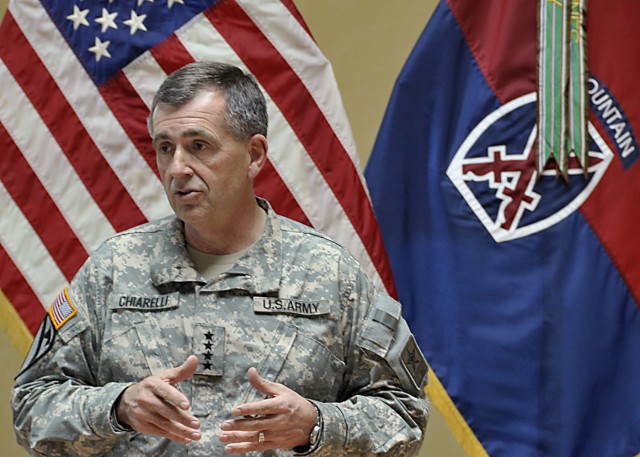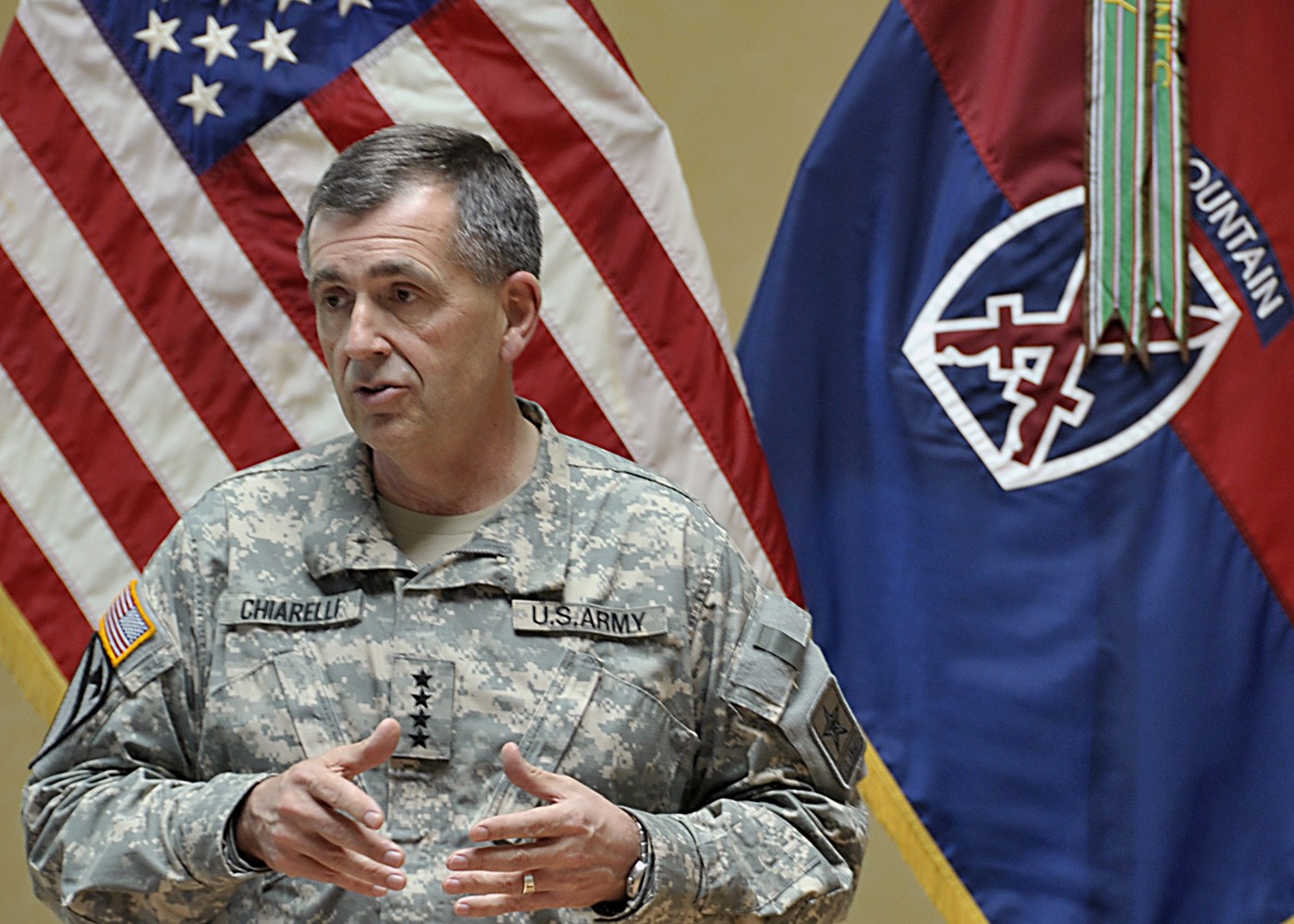WASHINGTON (Army News Service, Dec. 27, 2010) -- The most important thing we can do for Soldiers exposed to the trauma of battle is to get them the proper care they need-right away, said Army Vice Chief of Staff Gen. Peter W. Chiarelli.
The general was addressing problems of many Iraq and Afghanistan veterans-including homelessness, unemployment, suicide, post-traumatic stress disorder, drug abuse-during a TV interview yesterday with Christiane Amanpour on ABC's This Week.
He emphasized the rapidity of which treatment is needed, citing in-depth discussions he had with PTSD and traumatic brain injury researchers.
"We know in treating PTS the closer you treat PTS to the event that occurs, the more likely you are to help that individual. So much so that they told me that, if the event occurs in the morning, it's very important that you bring the individual's anxiety level down before they go to sleep that night, because in (rapid eye movement) sleep, something happens in the brain that causes an individual to remember that and make the PTS harder to treat."
Resiliency centers are now located in combat areas so Soldiers can get the help they need right away, he said. If Soldiers are exposed to a traumatic event-say within 15 meters of a blast-Soldiers are evaluated right away and then reevaluated 24 hours later, since symptoms of PTSD and TBI sometimes don't immediately occur. If an injury has occurred, the Soldier is taken to the resiliency center, where he or she can rest and receive further treatment.
The best scenario would be to have the Soldier spend more time at home and less in combat, he acknowledged, noting a visit he made to an aviation brigade, where 62 percent of the senior pilots were on their third deployment and nearly 40 percent were on their fourth.
The other limiting factor, Chiarelli said, is that although much research has already been done regarding PTSD and TBI, experts still don't fully understand the brain and the genetic factors that predispose some to injury more than others.
Chiarelli said the reluctance of Soldiers seeking help for PTSD/TBI has been reduced in recent years, but more work is still needed. He said the Army is sending a strong message to Soldiers that it's OK to ask for help. A video with interviews of Medal of Honor recipients discussing this topic has been particularly effective, he said, as they are men who Soldiers look up to and respect.
Soldiers with PTSD/TBI who are transitioning to civilian life are given help in warrior treatment facilities, he explained. Once they leave the service, care continues through the Veterans Administration. Chiarelli acknowledged that the VA's disability evaluation system is a relic of World War II that doesn't fully meet the needs of today's veterans and is in need of repair, but he added that retired Army Chief of Staff Gen. Eric K. Shinseki, now secretary of the VA, is trying hard to fix the problems. He "understands us" and "we work very, very closely with him."
Getting help for Soldiers before they separate is the Army's top priority, the general said. He cited a National Institute of Mental Health PTSD study for civilians that found it took individuals an average of 12 years between the initiating events to the time they first seek help. "Now the issue there isn't that they finally seek help (after 12 years)," he said. "It's all the things that happen in between. Everything from high-risk behavior to drug abuse to prescription drug abuse, anger management issues, to divorce. I mean, those kinds of things are affected when people don't get treated for posttraumatic stress."
Chiarelli described the situations Soldiers face in combat and the Army's current treatment program tailored to those conditions:
"What we see is a Soldier who's downrange (in Iraq or Afghanistan) for 12 months in a very high adrenaline environment, where every single day, he or she finds themself facing an enemy. And they come home, and many times, want to replicate that," he said.
"We're looking at programs that, first of all, ensure that we are identifying early on those who are going to have a rough time reintegrating. And then taking Soldiers and putting them in high-stress kind of events that are safe for them, such as water rafting and out doing those kind of sports to burn off that adrenaline."
This approach is reducing high-risk behaviors Soldiers suffering from PTSD might otherwise be taking, he said, adding that a lot more research is needed. And, although the Army has reduced the stigma of PTSD/TBI, more work is still needed to get Soldiers to ask for help.


Social Sharing